Christopher Codrington, Were You a Very Bad Man?

Quest
Jack and Hannah Ormerod and Lucia, Delphine & Fin
Fri 23 Dec 2016 13:47
Ah, the complications of history. The Caribbean has such terrible modern beginnings. You can still see it. How the majority of its inhabitants, its smiling, rock-steady, kind inhabitants are essentially from displaced backgrounds. And at the very top of the Caribbean’s 300-year historical triangle, illustrating the movement of slaves, sugar, rum and textiles across the Atlantic Ocean, was Christopher Codrington. He was Antigua’s first successful sugar plantation owner. Her first sugar baron. Christopher Codrington began in Barbados. Barbados was where the UK sugar industry was honed into success. In the 1600s, growing sugar was and remains today a skilful business. It requires an expert knowledge of growing conditions, exacting machinery that was transported and assembled thousands of miles away and employs a complicated and dangerous processing method. All of this in a faraway hot and humid climate where yellow fever killed anyone it could get its hands on. At the time, no other agricultural method in 17th century Europe matched sugar's technological sophistication. And profits were huge; the tea break was born in this time. Everyone loved and wanted sugar. Europeans came to work sugar cane until most either died of disease and infection or came back home as soon as they could. Plantation owners soon realised that Africans had a better immunity to tropical disease. And Africans were strong. Enter one of the most brutal periods of history. We know Christopher Codrington started out as one kind of person and ended as another. This wasn’t unusual either. A similar fate met thousands of Europeans who sought their fortunes in the Caribbean. For most people who crossed the Atlantic and settled into plantation life, morals were mostly always abandoned. Awful pragmatism overcame ideals. The Caribbean became a fatalist destination where lives were expected to be short and hedonism became king. This contrasted sharply with North America where people searching for fortunes travelled with religion first and foremost in their suitcases, lived much longer and tended to spend their lives worrying about it. Ha! Is history still repeating itself? I wonder... Going back to Codrington…being a proper despot, he took it one step further than most. For expanding to Antigua wasn't just an opportunity. It was a necessary escape. We know that after being one of the most popular and progressive Governors of Barbados, something changed Codrington. Was it simple greed or acclimatising to ‘owning' people or a hardening by watching his wife and children succumb to disease? No one knows. But the tide turned forever when he was accused of murder. Murder! And not just murdering anyone but the new Governor's son! Over a delicious piece of land. Reputedly the best in Barbados with its own spring water and sheltered harbour. Unfortunately, the Governor’s son, who laid a similar claim to it, came to Codrington's for dinner and was dead by the morning. Terrible burning in the stomach, they said. Unsurprisingly, his dad, the Governor wasn’t best pleased and at this point Codrington must have counted his chickens. And he was off. Betty’s Hope, claimed in 1674, was named after Codrington's daughter. Enjoying this new frontier land, Codrington soon turned it into Antigua’s biggest sugar plantation. Over 800 acres and thousands of slaves. For fifteen years too it was the site of Antigua and all of the Leeward Islands’ government. In fact, it was so big that nearby Barbuda was leased by Codrington’s brother just to grow food for the plantation. The whole island.. Records show that slaves on Barbuda had a much less brutal existence. Still, they were threatened with working in Betty’s Hope if they went out of line. And Codrington? Did he meet a well-deserved sticky end? Well, he had a lot of mistresses. As most men would now go misty-eyed and stare off into the middle-distance, perhaps this is not quite a sticky end! Not the bad kind anyhow… Ahem. But with his mistresses came children. Lots of children. We know this because after his death in 1698 at the age of 58, he left most of his mistresses and multiracial children both stipends and their freedom. This is clearly shown in his will, one of the few documents that exist in the Betty’s Hope legacy. Through her rubble and the windmill. Love from Quest and her crew xx 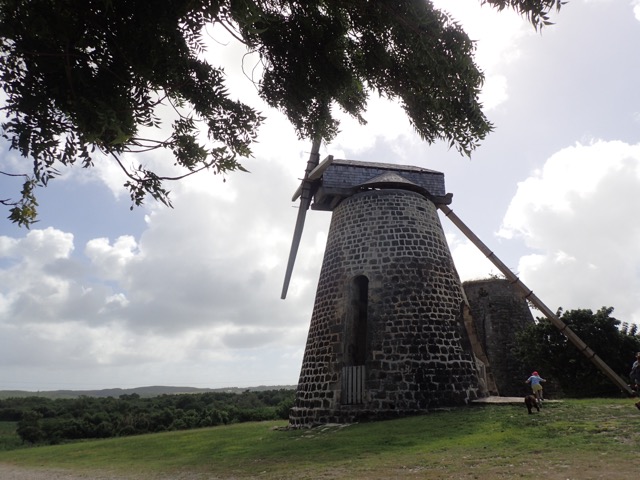 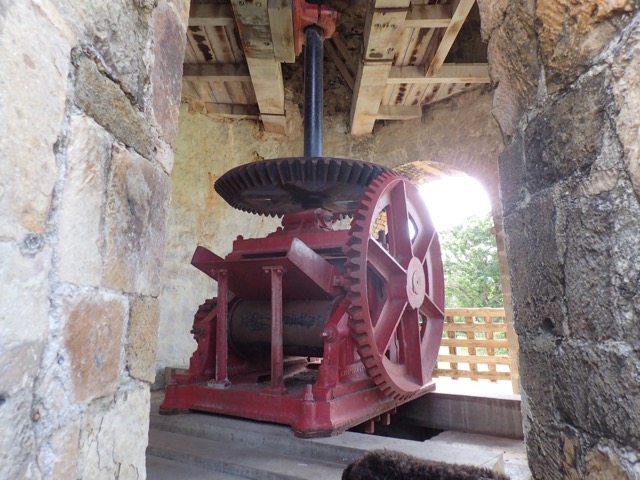   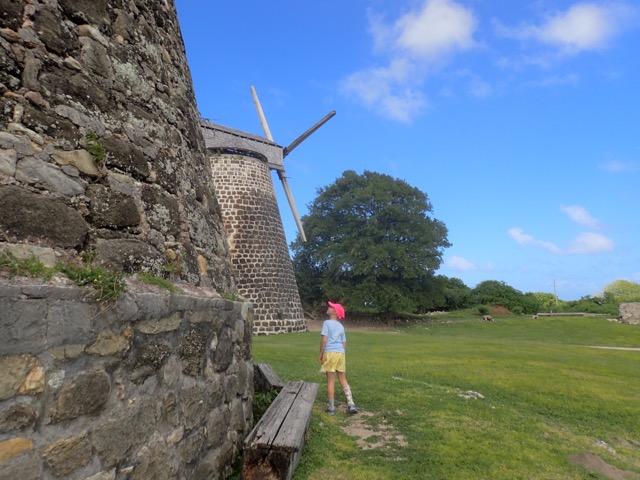 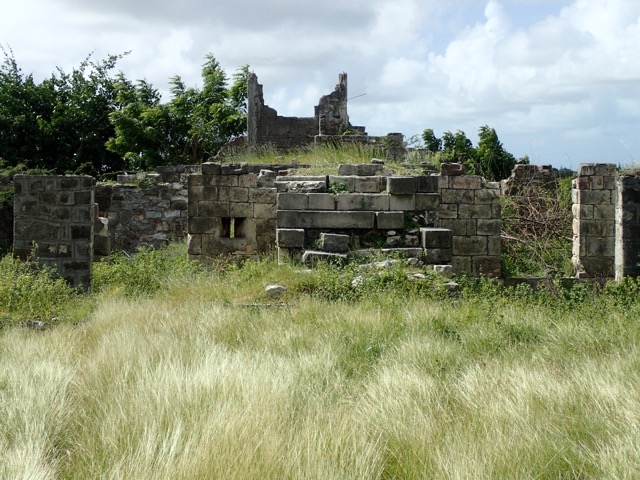  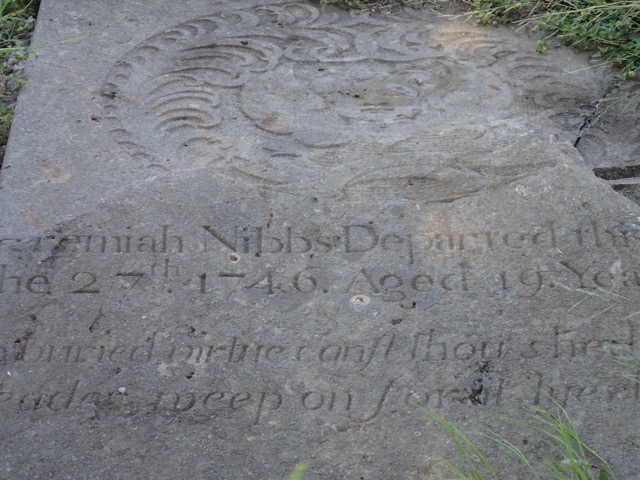 |